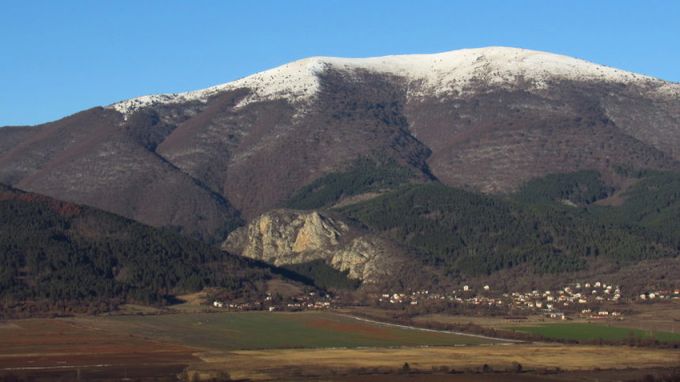
While over the past fortnight the public domain and parliament have been in the grip of discussions on the electoral legislation and whether to introduce a majority voting system in Bulgaria or not, two Bulgarian towns held local referendums. This country does not have any traditions to speak of in exercising this species of direct vote, yet we have seen some good examples in this respect. They are particularly well suited to settling local issues. As political analyst Purvan Simeonov says: “The local community is close to the problem, they can see it, touch it and make an informed choice.”
One of the local referendums was held in Trun in western Bulgaria, close to Bulgaria’s border with Serbia, a region where there was a gold mine up until the mid-1970s. Gold ore mining and processing was planned there by an investor company covering an area of 19 square kilometers, with one of the ore deposits falling within the bounds of protected zones which are part of the Natura 2000 network. Local initiatives stood up against these plans, an association “Trun” was founded especially for the purpose. Significantly, the turnout at the referendum was high – 59.7 percent and the gold mining project was rejected in a landslide result of over 90 percent.
As a result the investors announced they were killing the project, disappointed by the “adverse investment environment”. Though they live in one of the most economically backward parts of the country, the local population chose the prospect of developing tourism and agriculture over the damage that will be done to the environment in the region.
The fact is that an encyclopedic guide of the Trun region was published recently and it features over 250 tourist landmarks and 60 itineraries. Environmental organizations have been calling for the development of organic farming in the region with no shortage of examples in this respect as conditions here are particularly well suited to organic farming.
 The public in Stara Zagora were more passive in casting their vote on the fate of one of the town parks, a park with more than 3,000 trees. It stands on plots of land restituted to former owners who now wish to do whatever they want with their property. The referendum turnout there was a mere 15.4 percent of all people eligible to vote which means the referendum is not valid as it falls short of the 40 percent threshold set down by law. This debacle was blamed on the municipality organizing it - a lame and inadequate information campaign and the confusing, even manipulative formulation of the question, Ultimately, however, the result was overwhelmingly in favour or preserving Bedechka as a park. Town mayor Zhivko Georgiev declared he would comply with the wishes of the public, voter turnout notwithstanding.
The public in Stara Zagora were more passive in casting their vote on the fate of one of the town parks, a park with more than 3,000 trees. It stands on plots of land restituted to former owners who now wish to do whatever they want with their property. The referendum turnout there was a mere 15.4 percent of all people eligible to vote which means the referendum is not valid as it falls short of the 40 percent threshold set down by law. This debacle was blamed on the municipality organizing it - a lame and inadequate information campaign and the confusing, even manipulative formulation of the question, Ultimately, however, the result was overwhelmingly in favour or preserving Bedechka as a park. Town mayor Zhivko Georgiev declared he would comply with the wishes of the public, voter turnout notwithstanding.
The local referendums held point to several tendencies. First, that Bulgarians are increasingly mindful of their living environment. Second – that there is one way to build a culture of participation in referendums and it is by organizing more and more referendums. Because as Diana Andreeva from the Active Citizenship Forum says: “They are organized on specific issues which affect people directly, they are palpable in terms of result and people are able to imagine the consequences more clearly which in turn hones the skill of making informed decisions.”
English version: Milena Daynova
Deanna Haag was born in Cleveland, Ohio, USA. She grew up dreaming of adventure and new horizons. After graduating from Wittenberg College in Ohio with a degree in Fine Arts, her life took an unexpected turn. The young American stood out for her..
Support for the activities of the Institute of Social Activities and Practices in Sofia is the cause that will unite organizers and guests of the Viennese Ball, which has become a tradition for the Bulgarian capital. This year's edition, scheduled..
Topics related to renewable resources and natural disasters united students from the Bulgarian Sunday School "Assen and Iliya Peykovi" in Rome, the First English Language School in Sofia and the Greve High School near Copenhagen. The project aims to..

+359 2 9336 661
